
Aid Teams Racing To Reach Survivors Of Deadly Quake In Eastern Afghanistan: UN
Sumaira FH Published September 03, 2025 | 12:50 AM

UNITED NATIONS, (APP - UrduPoint / Pakistan Point News - 3rd Sep, 2025) Aid workers are continuing to race to assist survivors of Sunday’s devastating earthquake which hit remote areas of eastern Afghanistan, as the death toll continues to climb, UN humanitarian officials said Tuesday.
The death toll from the 6.0-magnitude earthquake has risen to at least 1,411 people as of Tuesday, according to latest media reports, citing the figures given by a Taliban Spokesman. Over 3,124 people were injured and 5,412 houses were destroyed in the event, which has devastated several villages and is causing significant challenges for ongoing rescue operations in the hard-hit Kunar and Nangarhar provinces.
Speaking from Kabul, the UN’s top aid official in the country, Indrika Ratwatte, said that mud and wooden roof structures were predominant in the affected mountainous provinces.
“When the walls collapse, the roof is what basically falls on individuals, kills them or suffocates them,” he said. “Since this happened in the night, everybody was sleeping,” the senior UN aid official explained, indicating that many more people may be trapped under the debris.
Hundreds of thousands could be impacted, “as in houses destroyed, injured, casualties, livestock lost and any livelihood systems that they had”, Mr. Ratwatte explained.
In the first critical 24 hours after the earthquake hit, access was “very limited”, owing to landslides and rockfalls triggered by the tremors. Some roads were already blocked by previous rockslides caused by recent heavy rainfall.
“This has posed a huge challenge to us as we deploy right now,” Ratwatte said, stressing that 20 emergency assessment teams have been mobilized alongside 15 mobile teams “which will enhance the humanitarian flights from Kabul to Jalalabad”, capital of the affected Nangarhar province.
The UN Humanitarian Air Service has scheduled additional flights connecting Kabul and Jalalabad for personnel and cargo to scale up the response, the UN said.
The aid official also said that the UN and others are trying to set up or repair damaged mobile networks as there is “zero connectivity” with some affected communities, “and even to bring in helicopters and land,” another challenge for the de facto authorities.
“It’s not easy to get to these areas and keep shuttling injured individuals,” he said.
Ratwatte underscored the importance of protection work, “including psychosocial support for individuals who lost family and loved ones”. He also stressed that it was urgent to dispose of bodies and dead livestock to prevent waterborne diseases, “which can happen very, very fast”.
One of the first responders in the affected areas was the Afghan Red Crescent. Joy Singhal, Acting Head of Delegation for Afghanistan of the International Federation of Red Cross and Red Crescent Societies (IFRC), said that more people could have been saved if road access were easier.
“Our staff and volunteers sometimes have to [walk] for about four to five hours to reach some of those remote villages,” he said. Once they reach their destination “they have to walk back and bring those affected and wounded people into the city centre…the two hospitals there are overwhelmed.”
Those staying in remote and mountainous quake-hit areas urgently need tents, tarpaulins and blankets to protect them from the cool weather in the highlands. They also need hot meals and food which is being made available, said Amy Martin, Head of the UN aid coordination office, OCHA, in Afghanistan.
Mobile health teams have been sent to some of the affected districts but they are "going to be in short supply", she noted. "That's going to be a gap; making sure that we can do that trauma care and that initial first aid, which is critical."
Afghanistan has long faced what the UN’s Humanitarian Coordinator Ratwatte called “systemic humanitarian challenges”. Half of its population - or some 22.5 million people - need assistance, while food insecurity has been aggravated by recent drought. Sweeping funding cuts to humanitarian programmes since the beginning of the year have meant that “hundreds” of aid facilities have had to close.
“The earthquake comes at a time where vulnerable communities are going to be super-exposed to additional stresses,” Ratwatte said.
Another major challenge is the return in 2025 of 2.4 million Afghan refugees from Iran and Pakistan, whom communities in the country have been “struggling to integrate”, said UN refugee agency (UNHCR) spokesperson Babar Baloch.
He also stressed that the majority of returnees are heading precisely to the earthquake-affected areas. In another “worrying” development, Sunday marked “the end of grace period for registered Afghan refugees in Pakistan” and UNHCR is preparing for “significantly more returns” in the coming days.
“These people already with very little resources are now returned to a disaster zone,” Baloch said.
“We are at breaking point in terms of response to the multiple humanitarian shocks in the country,” the UN’s Mr. Ratwatte insisted.
The $2.4 billion humanitarian response plan for Afghanistan for 2025 is only 28 per cent funded, “and here we have an emergency on top of the crisis situation”, he concluded.
Recent Stories

Currency Rate In Pakistan - Dollar, Euro, Pound, Riyal Rates On 3 September 2025

Today Gold Rate in Pakistan 03 September 2025
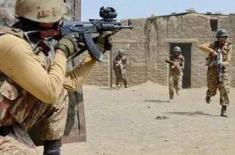
Operation against Khawarij completed, all 6 terrorists killed, six security pers ..
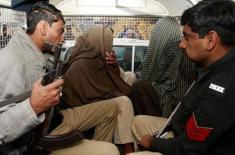
205 drug dealers held in 24 hours
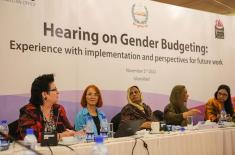
WPC discusses plan addressing climate change
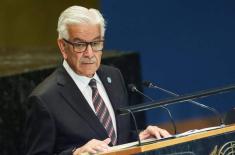
Minister vows action against illegal riverbed constructions
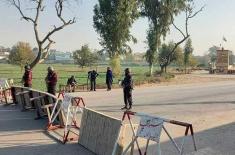
President condemns terrorist attack on FC headquarters in Bannu
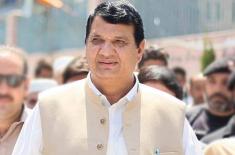
Muqam chairs high level meeting

Punjab Chief Minister Maryam Nawaz Sharif directs DCs to assess flood damages, e ..
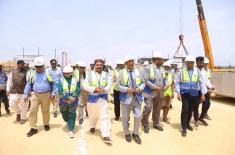
Timely evacuation & relief ensured under PM’s supervision: ederal Minister for ..
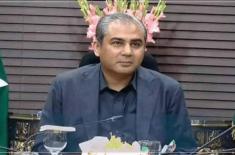
Federal Interior Minister Mohsin Naqvi condemns Bannu terror attack, pays tribut ..
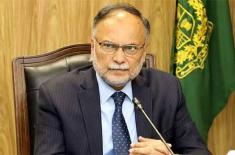
Govt focuses on agri, industrial, mining sector: Federal Minister for Planning a ..
More Stories From World
-
Aid teams racing to reach survivors of deadly quake in eastern Afghanistan: UN
9 hours ago -

Ambassador Rahim meets Mayor of Belgium's Watermael-Boitsfort
11 hours ago -

UK announces medical treatment, scholarships for Palestinians
15 hours ago -

Death toll due to earthquake crosses 1,400 mark in Afghanistan
17 hours ago -
Istanbul Airport becomes busiest airport in Europe
20 hours ago -
UN chief calls for strengthening multilateralism, appeals for Gaza peace at SCO summit
20 hours ago
-
Ahsan visits Tianjin to explore new opportunities for Pakistan under CPEC 2.0
20 hours ago -

Indian woman finds missing husband after seven years through Instagram reel
21 hours ago -
SCO-Pakistan partnership in agr-tech yields tangible results
21 hours ago -
Pakistan, China vow to deepen all-weather strategic cooperative partnership
21 hours ago -

PM Shehbaz to meet China, Russia, Tajikistan presidents today
14 hours ago -

UN chief pledges to help people hit by deadly earthquake in Afghanistan
1 day ago





